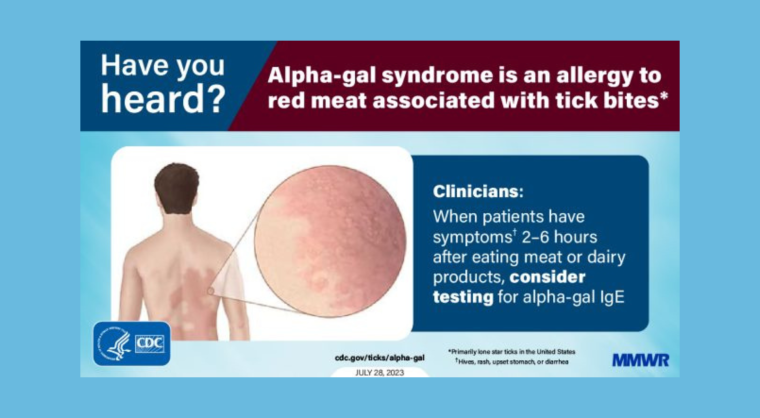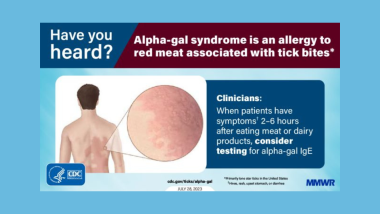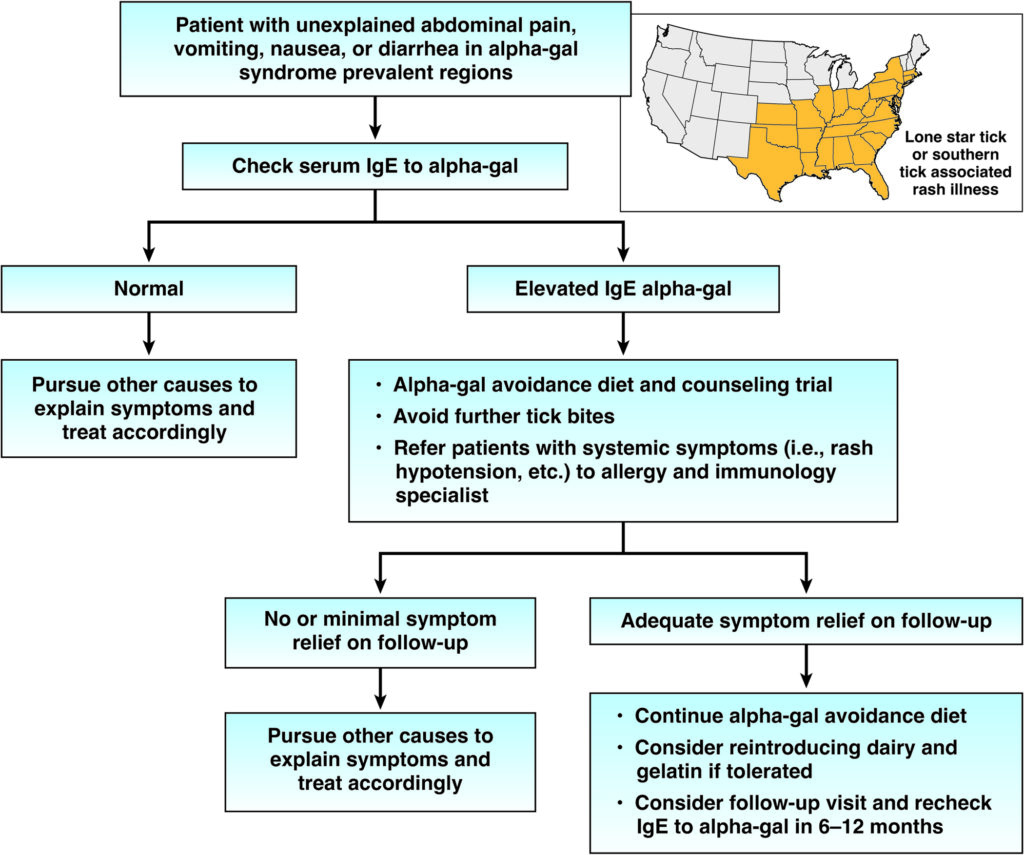CDC has released two new reports highlighting the prevalence of alpha-gal syndrome (AGS) — an emerging disease associated with tick bites that causes a patient’s body to react to eating meat from mammals and products made from mammals. Symptoms usually start 2-6 hours after eating the mammalian meat or food, and can be life-threatening.
Key takeaways
- According to one report, 42% of 1,500 doctors surveyed had never heard of AGS.
- One report estimated that as many as 450,000 Americans have been affected since 2010, with that number expected to increase.
- Cases are most prevalent in the southern, midwestern and mid-Atlantic U.S., overlapping the range of the lone star tick.
AGA clinical guidance
AGA released clinical guidance earlier this year to help you identify if unexplained digestive symptoms could be due to alpha-gal syndrome.
You should consider alpha-gal syndrome in patients with unexplained symptoms of abdominal pain, diarrhea, nausea and vomiting, particularly those who live or have lived in an alpha-gal–prevalent area (this includes the Southeast, mid-Atlantic, Midwest and East Central U.S. regions).
For patients with suspected alpha-gal, you should test them using serum testing that looks for immunoglobulin E antibodies (IgE) to alpha-gal. Patients with these antibodies may have alpha-gal allergy. The main treatment for alpha-gal allergy is to not eat foods that contain alpha-gal. This includes mammalian meat, fat and products made from them.














